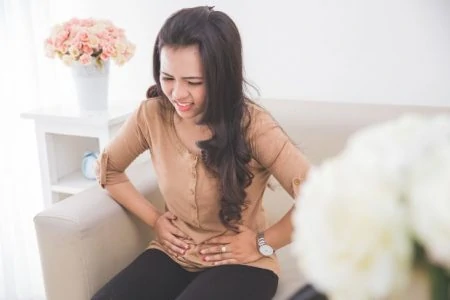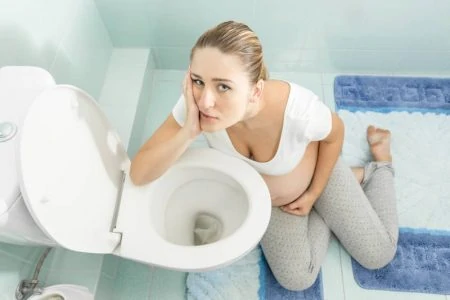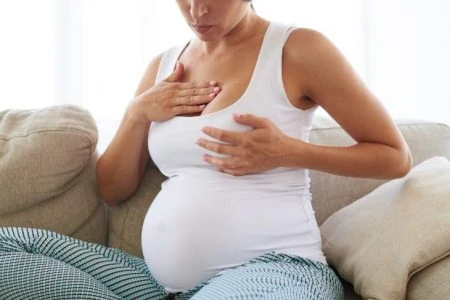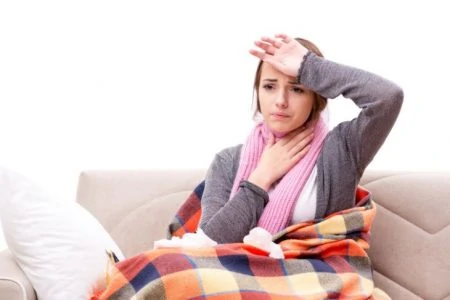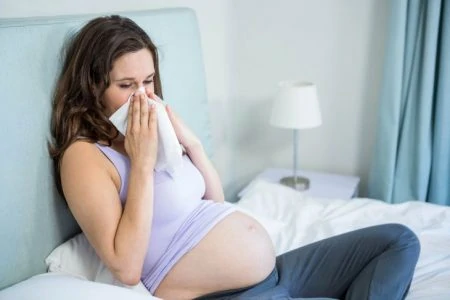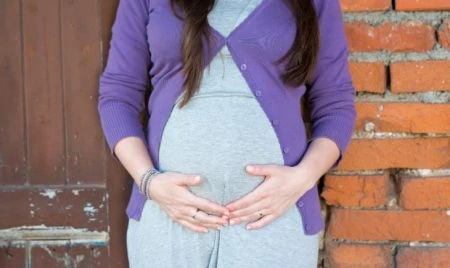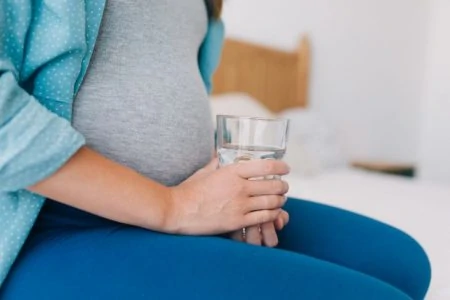Is it normal to have diarrhea during pregnancy? What causes pregnancy-related loose stools, and what can you do if you are pregnant and experience them?
The majority of pregnant women actually experience constipation, but diarrhea is relatively likely to occur as well.
There are several factors that can cause a pregnant woman to experience diarrhea. Most cases of diarrhea are not a cause for concern and will clear up on their own without intervention.
In this article, we aim to answer all your questions about diarrhea during pregnancy and offer tips from our medical experts about how to relieve it.
Key Takeaways
- Diarrhea during pregnancy can be caused by diet changes, food sensitivity, increased water consumption, prenatal vitamins, or sickness.
- To avoid diarrhea, limit foods that may trigger it and implement a diet with gentle foods such as potatoes, carrots, bland bread or crackers, bananas, grains, rice, and Gatorade.
- Treat diarrhea by staying hydrated, resting, consuming probiotic foods, and following the B.R.A.T. diet (bananas, rice, applesauce, and toast); consult your doctor before taking any over-the-counter medications.
- Diarrhea is not likely to cause a miscarriage or signal a serious issue, but if it lasts more than two days or is accompanied by concerning symptoms, consult your doctor.
What Causes Diarrhea During Pregnancy?
Diarrhea is one issue associated with pregnancy that is usually not caused by hormones. Your diarrhea is likely caused by something you consumed. Your pregnant body is overly sensitive to all changes, so even the slightest adjustment can wreak havoc (1).
Let’s look at some of the culprits that may be behind your frequent dashes to the bathroom.
1. Diet Changes
Once you found out you were pregnant, you may have decided to start consuming healthier foods. Making a change like this can cause your stomach to become upset because it is not used to the new intake.
High fiber intake from leafy vegetables and fruits is beneficial during pregnancy. But don’t overdo it because if you are dealing with diarrhea, it can worsen the problem.
2. Food Sensitivity
It is not uncommon for your pregnant body to suddenly decide to reject foods you have always eaten. These foods can lead to an upset stomach and eventually diarrhea. Adding new foods that your body has not been used to before pregnancy can also cause an upset stomach and diarrhea.
3. Increased Water Consumption
I am sure it has been stressed to you that staying hydrated is an essential part of pregnancy. A downside to this is that the increased intake could lead to diarrhea.
This is especially true if you suffer from irritable bowel syndrome with chronic diarrhea. Your doctor might limit your fluid intake to make your symptoms less severe and frequent.
It’s important to remember that diarrhea can cause dehydration. That is why if you are having multiple episodes of diarrhea and feel dehydrated, it is important to keep up your water intake as the benefits will outweigh the risk to you and your baby.
Editor's Note:
Dr. Njoud Jweihan, MD4. Prenatal Vitamins
Prenatal vitamins are important for yourself and your baby, but they can sometimes be the reason you suffer from loose stools. This can be due to some herb and vegetable extracts included in the blend. Take a look at the label and ingredients to make sure you are not sensitive to one or more of them.
5. Sickness
Your diarrhea could result from some type of illness like stomach flu, food poisoning, or even intestinal parasites.
If you believe one of these illnesses may be the culprit, you should contact your doctor.
How Can You Avoid Diarrhea?
One way to limit your chances of suffering from diarrhea is by watching what you eat. You should choose foods that are gentle on your digestive system and will not lead to an upset stomach. There are specific foods to limit and foods you should implement into your diet (2).
Foods to Limit
- Dried fruits.
- Prunes.
- Fatty foods.
- Spicy foods.
- Fried foods.
- Milk.
- Soda.
- Juice high in sugar content.
- Gluten.
If you know one of these items does not affect your stomach, you can continue consuming it however you like. But if you notice one of these triggers diarrhea, you will want to consider avoiding it altogether.
One way to figure out your triggers is to create a food diary. When you suffer from diarrhea, write down the foods you consumed in the past 24 hours. If any of these fall into the above category, you’ve likely found your culprit.
Foods to Implement
Some foods are less likely to cause diarrhea than others. If you’re having trouble with repeated trips to the bathroom, add in some of these foods.
- Potatoes.
- Carrots.
- Bland bread or crackers.
- Bananas.
- Grains.
- Rice.
- Gatorade.
When you are suffering from diarrhea, it is important you try to stick to a B.R.A.T. diet. This consists of bananas, rice, applesauce, and toast.
How Can You Treat Diarrhea?
Diarrhea should run its course in just a couple of days, but you can use medication to intervene if it is severe. Your options can include consistent rehydration, following a bland diet, and staying away from greasy foods. Some teas can also ease the symptoms of diarrhea and calm the stomach. Examples include chamomile and ginger tea.
It’s important to consult your doctor before beginning the use of any remedies or over-the-counter medication.
Editor's Note:
Dr. Njoud Jweihan, MDOver-the-Counter Medications You Might Consider
- Kaopectate.
- Imodium.
Kaopectate is the safest over-the-counter medication because it does not cross the placenta. Imodium is the second-best choice. If you use Kaopectate, it has the added advantage of being safe for babies to use. Hang onto it after you have the baby, as the pediatrician may recommend it if your baby gets diarrhea.
Over-the-Counter Medications To Avoid
You should avoid diarrhea medications that contain sodium or sodium bicarbonate. Some medical experts also advise against using the product Lomotil (3).
Other Remedies
Some of the most important ways to treat diarrhea are related to the foods you eat. As gross as it may be, what goes in has to come out.
If you supply your body with beneficial digestive nutrients, you may be able to rid yourself of diarrhea quickly.
- B.R.A.T. diet: Stick to the diet we mentioned above. The light and easily digestible foods will help ease your stomach and prevent it from becoming more upset. This diet can also help form your loose stools.
- Stay hydrated: Some recommend consuming coconut water. The natural drink doesn’t have as much sugar as sports drinks but still has a lot of electrolytes. You are losing water in your stools, so it’s essential to replenish your body.
- Rest: Avoid exercising as this can upset your stomach further. Sleep will help your body recover.
- Choose probiotic foods: In addition to the B.R.A.T. diet, probiotic-rich foods like kimchi can help restore healthy gut bacteria.
Can Diarrhea Cause a Miscarriage?
An expectant mother’s worst fear is a miscarriage, so when you experience diarrhea cramps, it is not hard to quickly assume a miscarriage is happening. Some expectant mothers have diarrhea as an early pregnancy symptom, so a miscarriage should not be your first assumption.
Diarrhea will not cause you to have a miscarriage. And no, you will not push your baby out when you are straining on the toilet.
The cramping you feel is associated with diarrhea, not an impending miscarriage, so put your mind at ease. The bodily systems are not connected, even though the stomach cramps feel so much like ones associated with miscarriages (4).
Diarrhea may be a symptom of miscarriage, but having diarrhea will not cause a miscarriage.
Diarrhea can also be caused by a virus, bacteria, or parasite due to the weakened immune system during pregnancy. If you know that someone around you is contagious, try to stay away, as it is easier for them to spread their infection to you than to a non-pregnant person.
Editor's Note:
Dr. Njoud Jweihan, MDWhen Should You Consult Your Doctor?
When you are pregnant, every abnormality can cause you to worry. Your motherly instincts are already kicking in, and you just want to make sure your baby is OK. Diarrhea does not typically require medical attention, but there are instances where you should seek help.
You should consult your doctor if you experience any of the following:
- Diarrhea has lasted for more than two days.
- You experience more than three loose stools a day.
- There is blood or mucus in your stool.
- You have severe stomach cramping.
- You have decreased urine.
- You have a fever.
- You have severe vomiting.
- You feel dizzy.
- You have dark urine.
- You have a dry mouth.
The majority of these symptoms are associated with dehydration. By consuming enough liquids, you can help prevent your diarrhea from leading to severe complications (5).
Dehydration can be extremely dangerous to you and your baby, so it is important to stay hydrated using water and drinks containing electrolytes.
In some cases, diarrhea can be due to a bacterial infection. This can be a very serious health issue as the bacteria can spread to the blood and the baby. Contact your doctor immediately if you are experiencing a high fever, vomiting, and diarrhea that is increasing in severity.
How To Relieve Rectal Pain
All those trips to the bathroom can take a toll on your backside. There are multiple ways to relieve the pain associated with your frequent bowel movements.
- Use baby wipes instead of toilet paper.
- Take warm baths to soothe the area.
- Apply a hemorrhoid cream if needed.
- Pat the toilet paper on your bottom instead of rubbing it.
- Use a TUCKS pad on the hemorrhoids or swollen anal tissue. TUCKS contains witch hazel, an astringent that decreases pain and swelling of the tissues.
- Wear loose-fitting breathable cotton underwear.
Can Diarrhea Be a Sign of Something Serious?
It is possible your diarrhea is a result of some other complication, but this is very unlikely.
One underlying issue that sometimes occurs is fecal impaction. This is when hardened stools block the exit of other stools resulting in liquid stool leaking around it as watery diarrhea (6).
This is typically associated with other symptoms like nausea, abnormal bloating, vomiting, and stomach pain.
Remember that if at any time you are questioning your symptoms, it is always OK to seek the advice of your medical professional.
Increased diarrhea during pregnancy can be related to stress and anxiety. Make sure your mental health is in check because if you brush it off, it can eventually lead to depression. Depression during pregnancy can increase the risk of postpartum depression and affect you and your baby.
Editor's Note:
Dr. Njoud Jweihan, MDDiarrhea and the Third Trimester
In the third trimester, diarrhea tends to become more common. It can be a sign that labor is near. It sometimes occurs a couple of weeks to days before labor begins.
Diarrhea is a way for your body to prepare for labor to begin. It should not be a cause for concern. It is not a sign your baby is coming right away, but it can indicate it is relatively close.
Diarrhea in the third trimester also does not mean you are going to go into premature labor. If diarrhea is accompanied by abdominal cramps, regular contractions, and vaginal bleeding, contact your doctor, as that can be a sign of preterm labor.
FAQs
The Bottom Line
It is not uncommon for you to endure diarrhea at some point in your pregnancy. If you steer clear of fatty, spicy, and fried foods, you can reduce your chances of suffering from diarrhea.
There are over-the-counter medications you can take to relieve your diarrhea, but it is important that you seek your doctor’s approval before using them.
Diarrhea typically poses no harm to you and your baby unless dehydration occurs. When suffering from diarrhea, be sure to consume many liquids to replenish those you are losing.
If your diarrhea lasts for more than two days or you have more than three loose stools a day, consult your doctor.
